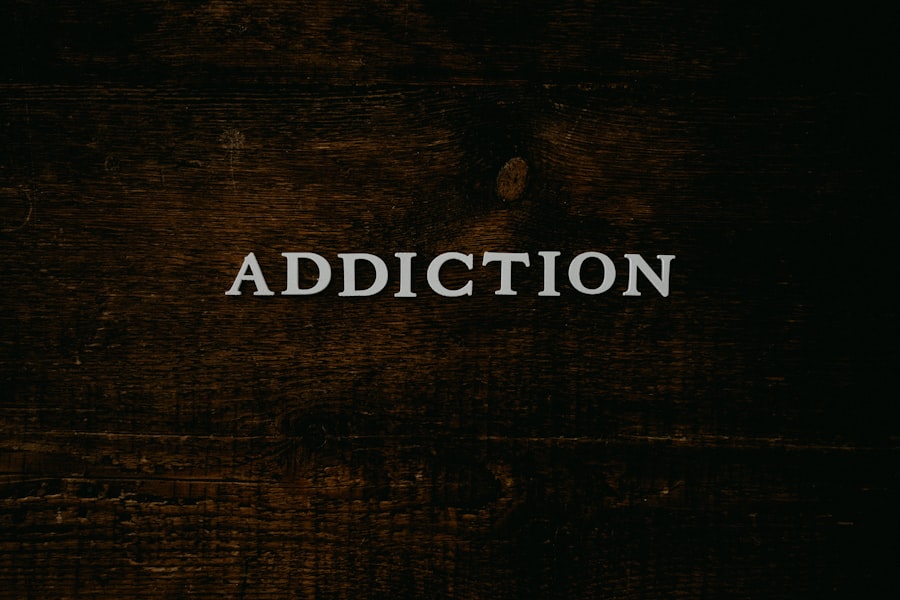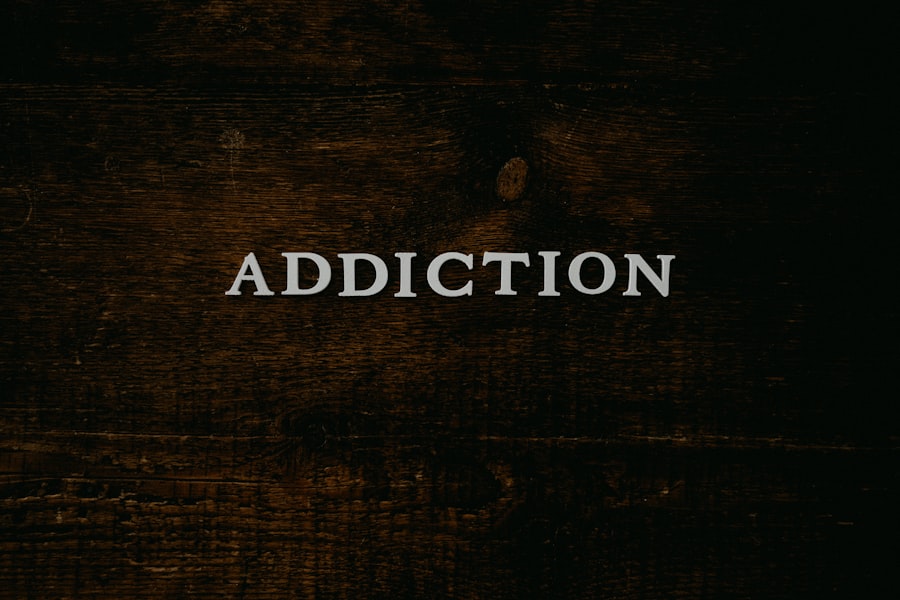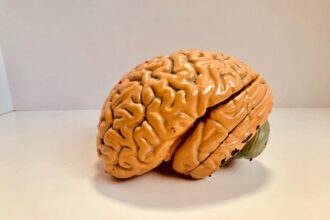In today’s digital landscape, you may find yourself caught in a seemingly endless cycle of scrolling through social media feeds, news articles, and various online platforms. This phenomenon, often referred to as scroll addiction, has become a common experience for many. You might not even realize how much time you spend mindlessly swiping through content, losing track of hours that could have been spent on more productive activities.
Scroll addiction is not merely a matter of preference; it is a behavioral pattern that can have significant implications for your mental and emotional well-being. As you engage with your devices, the allure of new content can be irresistible. Each swipe or tap offers the promise of something fresh and exciting, creating a compulsion to keep going.
This behavior is not just a personal quirk; it is rooted in the design of the platforms you use. Social media and other digital applications are engineered to keep you engaged, often at the expense of your attention and focus. Understanding the mechanics behind scroll addiction is crucial for recognizing its impact on your life and finding ways to regain control over your digital habits.
Key Takeaways
- Endless scrolling can lead to addiction and have negative effects on the brain’s reward system.
- Dopamine plays a key role in the addictive nature of endless scrolling, creating a cycle of seeking and reward.
- Endless scrolling can impact attention and focus, leading to decreased productivity and cognitive function.
- The urge to keep scrolling is linked to neurological processes that drive the need for constant stimulation and novelty.
- Endless scrolling can contribute to stress and anxiety, as well as disrupt sleep patterns and have long-term effects on the brain.
The Role of Dopamine in Endless Scrolling
Dopamine, a neurotransmitter often associated with pleasure and reward, plays a pivotal role in your experience of scroll addiction. Each time you scroll and come across something that piques your interest—be it a funny meme, an intriguing article, or a captivating video—your brain releases dopamine. This release creates a sense of satisfaction and reinforces the behavior, making you more likely to continue scrolling in search of that next hit of pleasure.
You may find yourself caught in a loop where the anticipation of new content becomes just as rewarding as the content itself. This cycle can lead to a heightened desire for instant gratification. As you scroll, your brain becomes conditioned to expect immediate rewards, which can make it increasingly difficult to engage in activities that require patience or delayed gratification.
You might notice that tasks requiring sustained focus or effort feel less appealing compared to the quick bursts of enjoyment from scrolling. This shift in your reward system can have far-reaching consequences on your ability to concentrate and engage meaningfully with the world around you.
How Endless Scrolling Affects the Brain’s Reward System

The brain’s reward system is intricately linked to your experiences with endless scrolling. When you engage in this behavior, you activate neural pathways associated with pleasure and reward, reinforcing the habit over time. As you continue to scroll, your brain learns to associate this activity with positive feelings, making it increasingly difficult to resist the urge to keep going.
You may find that even when you are aware of the negative consequences—such as wasted time or decreased productivity—you still feel compelled to scroll. Moreover, the constant influx of new information can lead to a phenomenon known as “information overload.” Your brain struggles to process the sheer volume of content available at your fingertips, which can result in feelings of anxiety or overwhelm. This overload can diminish your ability to derive satisfaction from real-life experiences, as the digital world becomes more enticing than the physical one.
As you navigate this complex relationship with your reward system, it becomes essential to recognize how endless scrolling can distort your perception of pleasure and fulfillment.
The Impact of Endless Scrolling on Attention and Focus
| Study Group | Attention Level | Focus Level |
|---|---|---|
| Endless Scrolling | Decreased | Decreased |
| Control Group | Stable | Stable |
Endless scrolling can significantly impact your attention span and ability to focus on tasks. As you become accustomed to rapid shifts in content, your brain adapts to this fast-paced environment, making it challenging to concentrate on slower-paced activities. You may find that reading a book or engaging in deep conversations feels increasingly difficult as your mind craves the quick rewards associated with scrolling.
This shift can lead to a decline in cognitive performance and an overall decrease in productivity. Additionally, the habit of constantly checking your phone or social media can fragment your attention throughout the day. You might notice that even when you attempt to focus on a task, the urge to check for updates or notifications pulls you away from what you were doing.
This constant distraction not only hampers your ability to complete tasks efficiently but also affects your overall mental clarity. As you grapple with these challenges, it becomes crucial to develop strategies that help restore your attention and focus in an age dominated by digital distractions.
Neurological Explanations for the Urge to Keep Scrolling
The urge to keep scrolling is not merely a matter of willpower; it is deeply rooted in neurological processes that govern behavior and decision-making. Your brain’s structure and function play a significant role in how you respond to digital stimuli. The prefrontal cortex, responsible for executive functions such as decision-making and impulse control, can become overwhelmed by the constant barrage of information presented through scrolling.
As this area struggles to manage competing demands for attention, you may find it increasingly difficult to resist the urge to scroll. Furthermore, studies have shown that excessive screen time can lead to changes in brain connectivity and function. The pathways associated with reward processing may become hyperactive, reinforcing the cycle of scrolling behavior.
You might experience heightened cravings for digital engagement, making it challenging to break free from the cycle even when you recognize its negative effects. Understanding these neurological underpinnings can empower you to take proactive steps toward managing your scrolling habits more effectively.
The Connection Between Endless Scrolling and Stress

Endless scrolling is often linked to increased levels of stress and anxiety. As you immerse yourself in a constant stream of information, you may find yourself exposed to negative news stories, social comparisons, and unrealistic portrayals of life that can contribute to feelings of inadequacy or distress. The pressure to stay updated and connected can create a sense of urgency that heightens stress levels, making it difficult for you to unwind or relax.
Moreover, the act of scrolling itself can become a source of stress when it interferes with your daily responsibilities or personal relationships. You might notice that instead of engaging in meaningful conversations or activities, you find yourself glued to your screen, leading to feelings of guilt or frustration. This cycle can perpetuate stress as you grapple with the consequences of neglecting other aspects of your life in favor of digital engagement.
Recognizing this connection between scrolling and stress is essential for developing healthier coping mechanisms.
The Influence of Social Media on Scroll Addiction
Social media platforms are designed with features that encourage endless scrolling, making them particularly potent triggers for addiction. You may find yourself drawn into an infinite loop of content as algorithms curate feeds tailored to your interests and preferences. This personalization creates an environment where each scroll feels rewarding, reinforcing the desire to keep engaging with the platform.
The social validation inherent in likes, comments, and shares further fuels this addiction, as you seek affirmation from others. Additionally, social media often fosters a culture of comparison that can exacerbate feelings of inadequacy or dissatisfaction with your own life. As you scroll through carefully curated images and posts from others, it’s easy to fall into the trap of believing that everyone else is living a more fulfilling life than you are.
This comparison can lead to negative self-perception and increased anxiety, further entrenching you in the cycle of scrolling as you seek solace in digital interactions rather than addressing underlying feelings.
Strategies for Breaking the Cycle of Endless Scrolling
Breaking free from the cycle of endless scrolling requires intentional effort and self-awareness. One effective strategy is setting specific time limits for your digital engagement. By allocating designated periods for checking social media or browsing online content, you create boundaries that help prevent mindless scrolling from taking over your day.
You might also consider using apps designed to track screen time or block distracting websites during certain hours. Another approach involves cultivating mindfulness around your digital habits. Take time to reflect on how scrolling makes you feel—both positively and negatively—and consider whether it aligns with your values and goals.
Engaging in alternative activities that promote fulfillment—such as reading, exercising, or spending time with loved ones—can help redirect your focus away from screens and toward more meaningful experiences. By implementing these strategies, you can gradually regain control over your scrolling habits and foster a healthier relationship with technology.
The Relationship Between Endless Scrolling and Sleep Patterns
Your sleep patterns can be significantly affected by endless scrolling habits. Engaging with screens before bedtime can disrupt your circadian rhythm due to exposure to blue light emitted by devices. This light interferes with melatonin production, making it harder for you to fall asleep or achieve restful sleep.
You may find yourself lying awake at night after hours of scrolling through social media or watching videos, leading to fatigue and decreased cognitive function during the day. Moreover, the content you consume while scrolling can also impact your mental state before sleep. If you’re exposed to stressful news stories or negative social comparisons right before bed, it can heighten anxiety levels and make it difficult for you to unwind.
Establishing a digital curfew—designating specific times when screens are put away—can help improve sleep quality by allowing your mind to relax without the distractions associated with endless scrolling.
The Potential Long-Term Effects of Scroll Addiction on the Brain
The long-term effects of scroll addiction on the brain are still being studied; however, emerging research suggests that excessive screen time may lead to structural changes in brain regions associated with attention and impulse control. Over time, these changes could contribute to difficulties in managing attention spans and regulating emotions effectively. You might find that tasks requiring sustained focus become increasingly challenging as your brain adapts to rapid-fire content consumption.
Additionally, chronic exposure to digital stimuli may contribute to mental health issues such as anxiety and depression.
Understanding these potential long-term effects underscores the importance of taking proactive steps toward managing your digital habits before they become ingrained patterns.
Navigating Endless Scrolling in the Digital Age
In conclusion, navigating endless scrolling in today’s digital age requires awareness and intentionality. As you recognize the factors contributing to scroll addiction—such as dopamine release, social media influence, and stress—it becomes easier to implement strategies for breaking free from this cycle. By setting boundaries around screen time, cultivating mindfulness about your digital habits, and prioritizing meaningful activities outside of technology, you can reclaim control over your attention and focus.
Ultimately, fostering a healthier relationship with technology is essential for maintaining both mental well-being and overall quality of life. As you strive for balance in an increasingly connected world, remember that it’s possible to enjoy the benefits of digital engagement without succumbing to its addictive tendencies. By taking proactive steps today, you can pave the way for a more fulfilling tomorrow—one where meaningful connections and experiences take precedence over endless scrolling.
In recent years, the neuroscience of scroll addiction has garnered significant attention as researchers strive to understand the underlying mechanisms that make endless scrolling so captivating. This phenomenon, often linked to the release of dopamine in the brain, can lead to compulsive behavior similar to other forms of addiction. For those interested in exploring this topic further, an insightful article on the subject can be found on Unplugged Psych. This resource delves into the psychological and neurological aspects of digital addiction, providing a comprehensive overview of how our brains are wired to respond to the constant influx of information. To read more about this, visit com/’>Unplugged Psych.
WATCH THIS! Your Brain Is Not Bored; AI Is Stealing Your Dopamine (76-Minute Documentary)
FAQs
What is scroll addiction?
Scroll addiction refers to the compulsive behavior of continuously scrolling through digital content, such as social media feeds, websites, or apps, often leading to negative impacts on mental health and productivity.
What are the signs of scroll addiction?
Signs of scroll addiction may include spending excessive amounts of time scrolling through digital content, feeling anxious or irritable when unable to scroll, neglecting responsibilities or social interactions due to scrolling, and experiencing negative effects on mental health.
How does neuroscience explain scroll addiction?
Neuroscience suggests that scroll addiction may be linked to the brain’s reward system, with the constant novelty and unpredictability of digital content triggering the release of dopamine, a neurotransmitter associated with pleasure and reward. This can create a cycle of seeking out more digital content to continue experiencing the dopamine release.
What are the potential impacts of scroll addiction on the brain?
Scroll addiction may lead to changes in the brain’s reward circuitry, affecting the way dopamine is released and processed. This can contribute to decreased impulse control, heightened sensitivity to rewards, and potential long-term effects on mental health and well-being.
Are there ways to address scroll addiction from a neuroscience perspective?
From a neuroscience perspective, addressing scroll addiction may involve strategies to regulate dopamine release, such as setting limits on digital content consumption, practicing mindfulness to become more aware of the urge to scroll, and engaging in activities that promote healthy dopamine release, such as exercise and social interactions.




